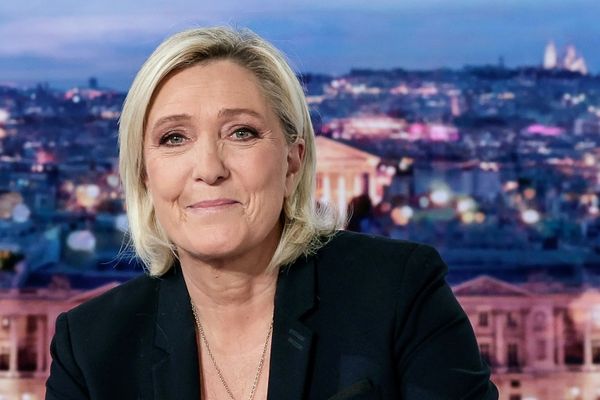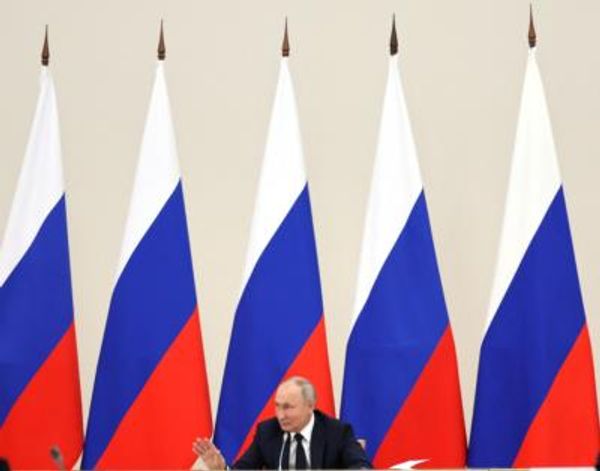
Yesterday Peter Dutton dropped an image on his Twitter feed announcing Australia’s latest military build-up, which put him front and centre and relegating a blurred-out Scott Morrison to the background.
Whether or not the defence minister’s social media team puts much thought into such things, the optics were clear — Dutton positioning himself as the driving force on national security matters, and the natural successor to Morrison for the Liberal leadership should the unthinkable happen.
Dutton’s cheeky bit of visual play came amid yet another tough week for a government that seems forever on the back foot during moments of crisis.
Morrison had to face deep local anger when he arrived in Lismore on Wednesday, battling a perception that the government didn’t move fast enough to send in Australian Defence Force personnel and other support as catastrophic floods hammered the northern rivers.
Some of the frustration at Morrison is optical — he didn’t seem “present” during the crisis and couldn’t cut the “right” tone, a reminder of his tin-eared response to the Black Summer bushfires. Some of this critique is a little unfair, given the prime minister was in COVID isolation until Wednesday, and headed to Lismore as soon as he was released.
But even that whirlwind visit seemed calculated to mitigate the damage against Morrison. He visited flood victims away from news cameras in the morning, much to the frustration of the press gallery. When he did front the cameras he copped an earful from local journalists wondering why regular citizens had to do the heavy lifting.
Labor, meanwhile, wondered why the government waited until Morrison was able to front the cameras before declaring a national emergency, more than a week after floodwaters started besieging the east coast.
With all that raging in the background, Morrison and Dutton pivoted to the comfortable terrain of national security, announcing a $38 billion plan to boost ADF personnel to nearly 80,000 by 2040.
It gave the government an opportunity to get out on the front foot and attack Labor for being “weak” on national security, consistent with the “khaki election” tactics it’s been trying on over the past few months. Morrison hit out at Labor for cutting defence spending last time it was in government, despite Opposition Leader Anthony Albanese almost simultaneously promising he’d do nothing of the sort.
But there’s evidence voters aren’t really buying the khaki election push. For people in flood-ravaged areas, the source of anger is the speed it took to deploy military support during the floods, not whether we’ve got enough troops to scare off Beijing.
Meanwhile this week’s Essential poll found respondents didn’t think the Coalition would manage a war any better than Labor. An earlier survey found voters trusted the opposition more on the China relationship.
And all the military bluster buried the arguably more important news: that after years without high-level contact, Foreign Affairs Minister Marise Payne met China’s new ambassador Xiao Qian and that Beijing could be willing to backtrack on its 14 disputes with Australia.
But the government has already gone all in on a militarised election campaign, which obliterates such nuance and leaves them potentially missing where the electorate really is.
But for Dutton — the government’s bluntest operator — it is strong territory. Nobody has pushed the “Labor weak on China and foreign threats” line more vociferously. And as defence minister, the military build-up puts him centre stage for the big pre-election announcements.
Treasurer Josh Frydenberg, the other man most likely to succeed Morrison, also wanted in on the defence stuff, headlining his address to The Australian Financial Review’s platinum 70th dinner “Securing Australia in an increasingly uncertain world”.
Frydenberg would probably rather be talking about tax relief or something, but war in Ukraine, the omnipresent China threat that the government has done so much to drum up, and the desperation to frame a difficult election campaign around national security issues meant he had to do otherwise.
Avoid it, and he risks further losing the moment to Dutton.







